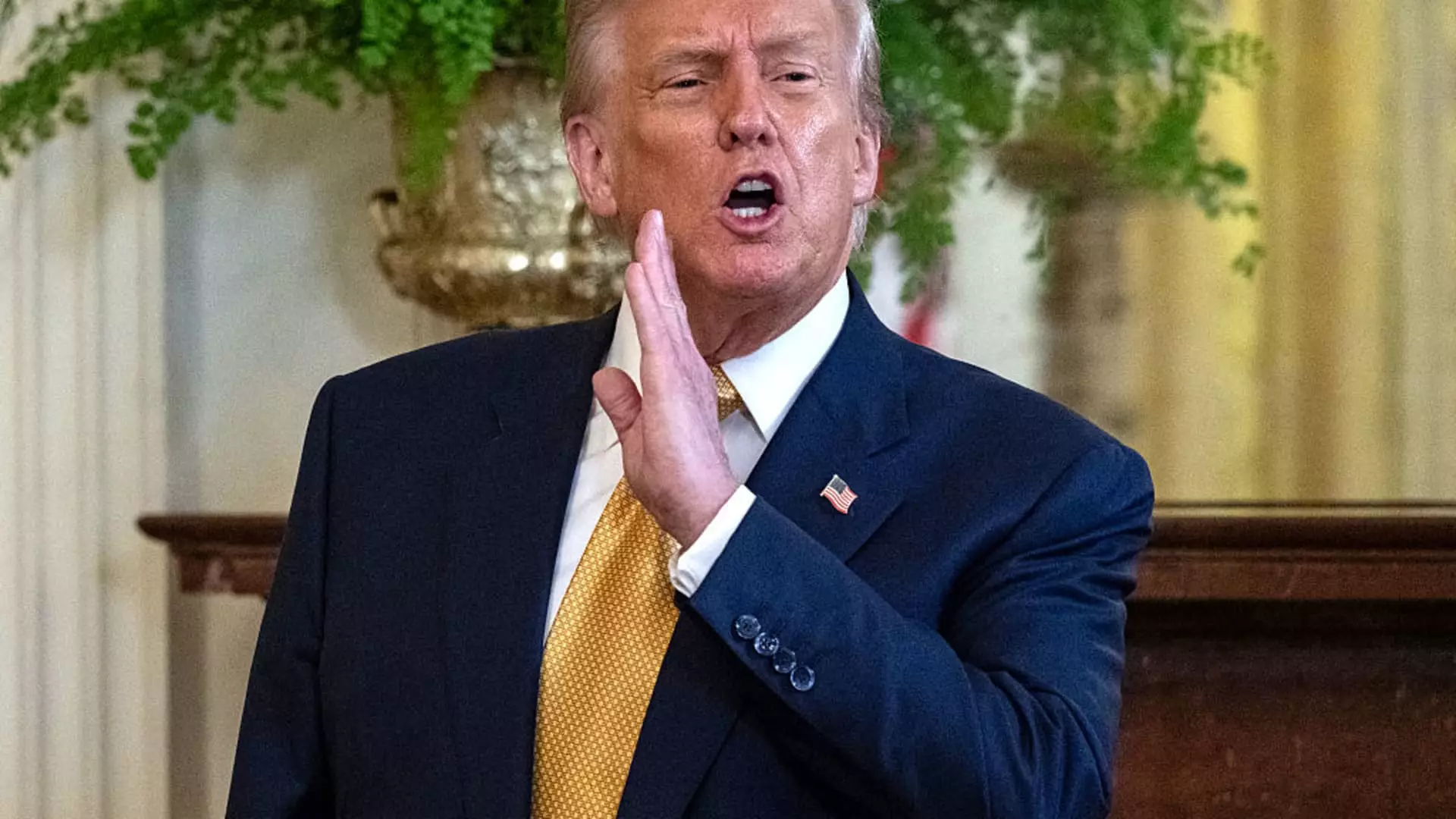Recent developments in U.S. trade policy reveal a turbulent pursuit of economic supremacy that threatens to destabilize international relations, especially between the United States and the European Union. President Donald Trump’s move to consolidate negotiations first with Japan and then with Europe exemplifies a pattern of transactional diplomacy grounded in short-term leverage rather than sustainable cooperation. While some may herald the U.S. effort as a bid for economic strength, a deeper, more critical lens uncovers a reckless embrace of protectionism that undermines multilateral stability. The EU, caught between the pressure to safeguard its economic interests and the imperative of maintaining strong transatlantic ties, must navigate these treacherous waters with prudence rather than capitulation.
The Illusion of Wins through Tariffs
The Trump administration’s focus on implementing tariffs—specifically threatening 30% levies on European imports—reflects a shortsighted approach that prioritizes immediate political gains over long-term economic health. The EU’s retaliatory measures, currently held in abeyance, loom like a volcano waiting to erupt, risking a spiral of escalating trade conflicts. These tariffs, often viewed superficially as tools to “protect” national industries, ultimately serve to distort markets, inflate prices, and erode the mutual trust necessary for genuine economic collaboration. The rapid market reactions—such as optimistic jumps in European auto stocks—may hide the deeper harm inflicted on transatlantic economic integration, which is foundational for global stability.
Commendable Progress or a Smokescreen?
The recent U.S.-Japan agreement has been heralded as a beacon of positive trade diplomacy, yet even its optimism demands scrutiny. While the deal’s reduction of auto tariffs from 25% to 15% appears beneficial, it raises troubling questions about who truly gains and at what cost. The auto sector, a linchpin of EU exports, is vulnerable to being played off against other global rivals like South Korea. The notion that these deals—though seemingly clean-cut—are merely a prelude to further concessions is more realistic than the celebratory narrative suggests. Moreover, the absence of sector-specific protections within the Japan deal signals a dangerous precedence: trade agreements becoming transactional, with sectors pitted against each other in a zero-sum game, weakening the EU’s leverage in future negotiations.
The Broader Implications for Global Diplomacy
Europe’s diplomatic maneuvering in Asia, with visits to Japan and China, reveals a strategic pivot that could either restore balance or deepen the crisis. The EU’s attempts to maintain multilateral dialogue clash with Washington’s protectionist stance, which is increasingly viewed as a unilateral power move. Experts warn that these U.S. policies exacerbate existing tensions with China, a pivotal player in global economics. Such policies risk turning the global arena into a battleground for economic dominance, where smaller nations are pawns caught between giants. The EU’s efforts to preserve trade with China amid U.S. pressures reflect an astute acknowledgment that diversification and resilience are essential in a bipolar economic landscape.
Challenging the Status Quo with Critical Insight
This entire saga exposes the fallacy of American economic exceptionalism—a belief that unilateral tariffs and aggressive negotiations will cement U.S. dominance. History demonstrates that such strategies often backfire, alienating allies and inviting retaliatory measures that ultimately harm domestic consumers and industries. The European Union, with its complex web of member states and nuanced economic interests, must resist the temptation to fall into the protectionist trap. Instead, it should advocate for a balanced approach: pushing for fair trade, transparency, and multilateral cooperation that benefits all parties. Real strength lies not in wielding tariffs as weapons but in fostering robust, interconnected economies that can withstand political storms.
The Future of Transatlantic Relations: A Critical Crossroads
The current trajectory threatens to redefine transatlantic relations, favoring short-term geopolitical gains over historical bonds rooted in shared democratic values and economic interdependence. The danger lies in underestimating the long-term consequences of escalating tariffs and fragmented negotiations. A more pragmatic, center-leaning liberal approach would prioritize dialogue, mutual respect, and the common good over aggressive protectionism. Such a stance recognizes that global economic stability depends on cooperation rather than confrontation. As Europe charts its path forward, it must critically evaluate whether acquiescing to America’s protectionist tactics will serve its interests or compromise its future prosperity and geopolitical standing.

Leave a Reply